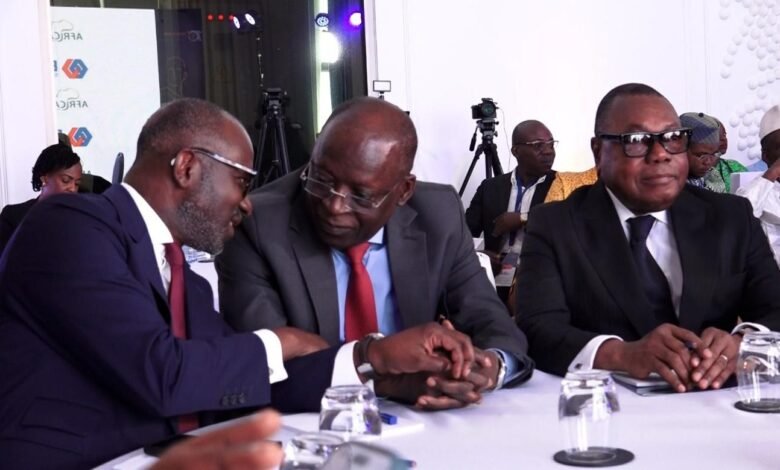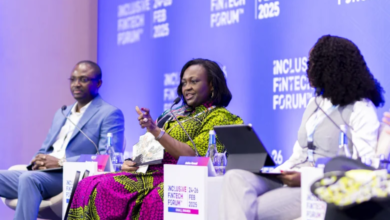African SMEs : the Africa SME 2025 pact to build economic giants
After ten years of commitment to supporting African Small and Medium Enterprises (SMEs), the Africa SME Champions Forum unveils a new collective ambition: to build strong and sustainable SMEs by 2035. This initiative, titled the "African SME Support Pact," was officially adopted on May 8, 2025, in Cotonou, during the strategic conclave marking the 10th edition of the Forum.

By Ulrich Vianney
Building Africa’s economic powers in the next ten years: this is the challenge taken up by the Africa SME Champions Forum. Gathered in Cotonou, during a special format of the 10th edition of the Forum, SME leaders, investors, financial institutions, development agencies, and public decision-makers decided to chart a sustainable path for African SMEs.
“The idea behind this year’s conclave is that we be a smaller group so that our discussions result in concrete recommendations, which we have called the 2025-2035 Transformation Pact. We will then organize these recommendations into pillars that make up the support for SMEs. The Pact is a commitment from the actors to achieve the set sectoral goals. Each recommendation amplified by each pillar will be translated, by the end of 2025, into a roadmap, which will allow us, starting in 2026, to say that we have begun to change the trajectory of SMEs to build the industrial giants we are missing on the African continent,” explained Didier Acouetey, president of the Africa SME Champions Forum and the AfricSearch group.
The pact aims to accelerate the development of African SMEs over the next ten years. To achieve this, the stakeholders of the SME ecosystem have set a common goal of mobilizing $50 billion in funding, boosting companies’ participation in regional and global markets, promoting digitalization and innovation within SMEs, and advocating for public reforms favorable to their growth. This desired paradigm shift, according to stakeholders, is not limited to financing or guarantees. It also involves promoting an entrepreneurial spirit in schools and universities, early-stage idea incubation, and a strong public-private partnership. “The large companies you see in the United States are born on campuses because there are incubators and junior companies that prepare young people for entrepreneurship. We need to ensure that young creators are well-prepared from the start. Another example: the interaction between the public and private sectors needs to be strengthened. It is clear that in our countries, public procurement represents a significant part of investment. We need to integrate more SMEs into the public procurement chain because that is how we grow a private sector capable of becoming an industrial giant, able to compete with other global players who usually execute these large contracts in Africa,” emphasized Didier Acouetey.
Challenges facing African SMEs
Although the SME ecosystem holds immense potential, it remains largely under-exploited on the continent. These enterprises represent 90% of the African economic fabric and generate about 60% of formal jobs. However, they continue to face significant structural challenges, such as limited access to medium- and long-term financing, weak integration into regional and global value chains, lack of technical and strategic support, a regulatory environment that is often unfavorable, as well as difficulties with innovation and digital integration. Public policies to support SMEs exist, but they remain fragmented, unequal, and insufficiently coordinated at the regional level in many states. “Without structural support, SMEs risk missing the industrialization, digitalization, and African economic integration shift, even though they are at the heart of social and economic transformation,” warned the Africa SME Champions Forum.
“To innovate, we need to focus more on digital, with better internet availability, creating businesses with just a few clicks, and simplifying all administrative procedures to allow entrepreneurs to start without obstacles,” added Abdoulaye Bio Tchané, Benin’s Minister of State for Development and Government Coordination. He also emphasized that university researchers must now be more at the service of businesses.
The forum, ten years later
AfricSearch launched the Africa SME Champions Forum in 2014 with the ambition to create a dialogue space between SMEs, investors, public decision-makers, and development institutions, acting as a lever for concrete impact on access to financing, innovation, and strategic partnerships, and bringing the issue of SMEs to the agenda of decision-makers across the continent. After this first decade, the Forum has helped create a dialogue framework, mobilize funding, and facilitate partnerships for African SMEs; supported the rise of SMEs that have become regional references; and significantly contributed to placing the issue of SMEs on the African political and economic agenda. Since 2015, the Africa SME Forum has become the essential meeting point for economic players determined to make African SMEs a major lever for development and innovation.
In ten years, the Forum has supported over 1,000 SMEs. The challenges to be met to turn the continent’s SMEs into economic giants are numerous, but the opportunities are equally vast. This is why, for the next ten years, the Forum aims to unite all stakeholders around an ambitious roadmap to accelerate, strengthen, and structure the development of SMEs.






